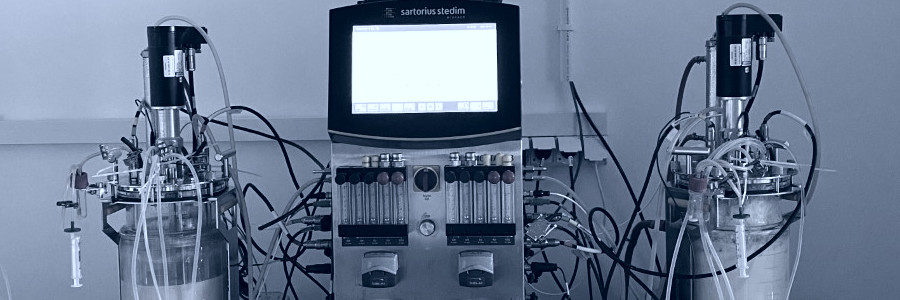
Bioprocess Development Laboratory
Tematyka Badawcza
Our research interests are closely related to a group of bacterial polymers – polyhydroxyalkanoates (PHA). In our research we focus on understanding the processes of production of these polymers by microorganisms from various renewable carbon sources (including vegetable oils, fatty acids, glycerol).
Within the Laboratory, we conduct fundamental research to determine the complete physicochemical and biological characterization of PHA polymers. A strong aspect is the search for application uses for these polymers. A parallel research pathway is studies on bacterial PHA monomers. Hydroxy acids are subjected to physical, chemical and enzymatic modifications, which allows the synthesis of a range of new and unique chemical compounds (surfactants or new organic solvents).
The Bioprocess Development Laboratory operates in five thematic areas:
- Bioprocess development – bacterial, yeast fermentations – including PHA (substrate/strain interaction; application of advanced modeling methods in process parameterization). We provide commercial services using biorefinery facilities (e.g. microbial process development from screening to optimization and scale-up of bioprocesses up to 200L).
- Cell research – we conduct research using mammalian cells for evaluation of materials/compounds with potential medical applications:
- cytotoxicity studies of materials/compounds/formulations;
- cell-material interaction studies;
- imaging of cellular structures in interaction with materials/compounds/formulations.
We also offer commercial contract services in this area.
- Biosurfactants (sugar esters) – research on new formulations using SE for targeted drug delivery. Studies on structural modifications of PHA monomers – introduction of new functionalities to the ester molecule by e.g. halogenation.
- Antibiotics – Studies on structural modifications of PHA monomers – introduction of new functionalities to the ester molecule by e.g. halogenation. Learning about their functionality (biological studies).
- Ionic liquids/deep eutectic solvents – studies on the synthesis of new green solvents based on biocomponents; identification of application possibilities (e.g. biomass separation, energy storage, medium for heterogeneous catalysis).